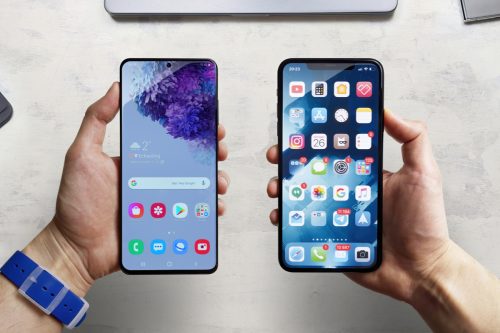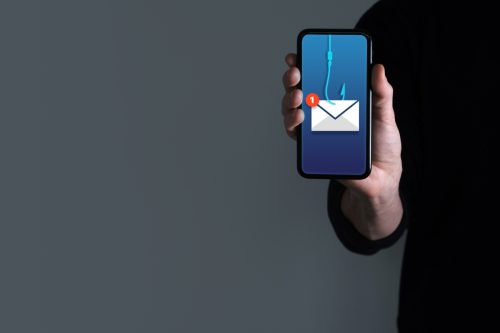If You Get a Text From This Number, Report It Immediately, Officials Warn

In the digital age we live in, there is no shortage of scams masked as gifts or opportunities that seem too good to be true. It seems with each passing day, there is a new scheme coming through as a text message or email, urging recipients to “click here” or “follow this link” for a reward or to address an otherwise urgent issue. When it appears you’re getting a message from a known entity, like your cellphone provider or even your boss, you might be quick to respond or fall for an otherwise deceitful ploy. This latest trick may be the craftiest yet, as the message is coming from someone you know personally—or perhaps, the person you know best. Read on to learn more about this new texting scam that you’ll want to report immediately.
RELATED: If You Get This Message From Netflix, Delete It Immediately, FBI Warns.
Wireless customers customers are receiving spam texts from their own numbers.

Any time a text comes through from an unknown number, you may pause and scan for an introduction or indication as to who is reaching out. But what if you recognize the number as your own? This is exactly what has been happening to Verizon Wireless customers, who have reported receiving a text that states, “Free Msg: Your bill is paid for March. Thanks, here’s a little gift for you,” which is then accompanied by a link.
The texts are crafty enough that they even avoid Apple’s iMessage feature, which filters unknown messages into a separate file. If you tap the sender details, you’ll be redirected to your own contact card.
If you get this text, you don’t need to panic.

Receiving the spoofed message does not necessarily mean that your number has been compromised or that your account has been hacked. This tactic to steal data or funds through texting has been dubbed “smishing.” The term is a combination of the terms SMS, or short message service, and phishing, which is employed when scammers “fish” for your personal information via a fraudulent message.
In responses to customer complaints on Twitter, Verizon Support has provided links to better understand Caller ID spoofing and stated that scammers use this tactic to avoid spam blockers. While the organization has not issued a statement directly addressing the issue, one tweet reply did state the carrier is “working to get a resolution.”
RELATED: For more up-to-date information, sign up for our daily newsletter.
Here’s what you should do if you receive one of these texts.

As is the general practice with scams like this and unsolicited text messages, you’ll want to avoid clicking the link if you do receive this text. For research purposes, Chris Welch, a reporter from The Verge, did click the link, which redirected him to a Russian news site, Channel One Russia. This was also reported by other users.
You’ll want to report these texts when you get them, which can help Verizon and other carriers keep track of scams and improve protection. You can copy the message and forward the spam texts to SPAM (7726) or report it as junk or spam via the messaging app you use, depending on whether you are an Apple or Android user. Verizon hasn’t widely addressed any potential issues with reporting a message from your own number as spam, but they do recommend contacting them if you fear your account has been compromised.
You can also report these issues by filing a complaint with the Federal Communications Commission (FCC). On the site, it lists “my own number is being spoofed” as a sub-issue. You’ll also want to delete the text once you have made any necessary reports.
You can learn how to protect yourself from these smishing scams in the future.

When smishing scams like this do become dangerous is when they prompt you to share sensitive information (think personal or financial details), passwords, or to download dangerous applications. According to Wired, iPhone users have an added layer of confidence when poached with one of these schemes, as the phone blocks the download of several malware and non-approved apps.
According to the U.S. Federal Trade Commission Consumer Advice, the promise of free gifts or prizes is a hint that a scammer may be on the other end, as well as offers to pay off student loans or eligibility for a new, low-interest credit card. A sense of urgency is another giveaway, as scammers prompt targets to act by a deadline, giving you less time to really think about your decision to respond.
Being aware of these types of scams is key, while also keeping your devices, browsers, and software up to date. Don’t respond to messages directly if you sense something is off, or do a web search to find out if others have received similar issues.
RELATED: If You Get This Call From Your Bank, Hang Up Immediately, Officials Warn.